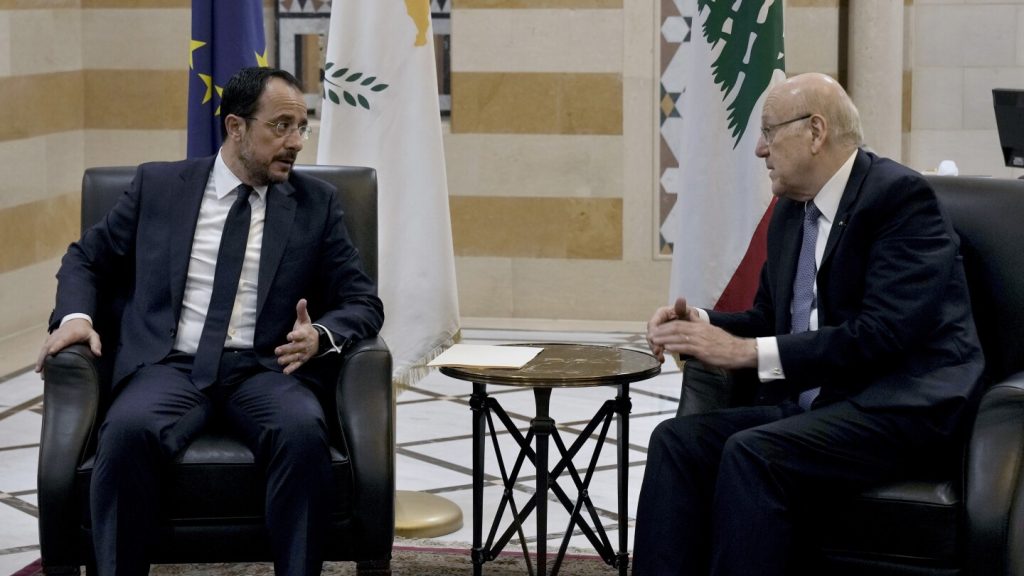Lebanese caretaker prime minister Najib Mikati and Cypriot president Nikos Christodoulides are urging the European Union to provide financial support to help Lebanon prevent migrants, especially Syrian refugees, from reaching European shores. Christodoulides visited Beirut with his interior and foreign ministers and army chief to address the issue, following his previous call for EU intervention. Mikati stated that Lebanon is in desperate need of a framework agreement with the EU to tackle the migration crisis, similar to deals already in place with Tunisia and Egypt.
The Cypriot Interior Ministry reported a significant increase in migrant arrivals by boat in Cyprus, with 2,140 people arriving between January and April 2023 compared to only 78 in the same period the previous year. The majority of these migrants were Syrian nationals departing from Lebanon. Lebanon, currently facing a severe economic crisis since 2019, hosts around 805,000 UN-registered Syrian refugees, with a majority living in poverty. Lebanese officials estimate the actual number of refugees to be much higher, reaching between 1.5 and 2 million, many of whom have fled the ongoing civil war in Syria.
Lebanon and Cyprus have an existing bilateral deal where Cypriot authorities return migrants attempting to reach the island from Lebanon. Mikati stressed the need for support in repatriating Syrian refugees, stating that most of Syria is now relatively safe as the conflict has reached a stalemate. Christodoulides emphasized the importance of addressing the root causes of migration, such as economic instability in Syria, and called on the international community to fund development projects in the country. However, concerns remain about the safety of repatriating refugees to Syria, with UN agencies, human rights groups, and Western governments cautioning against premature returns.
Cyprus has been advocating for the EU to designate certain areas within Syria as “safe zones” for repatriation purposes. Cypriot Interior Minister Constantinos Ioannou stated that the proposal is gaining traction within the EU, although it may not be implemented in the near future. The Lebanese and Cypriot delegations are currently discussing a joint proposal focused on facilitating the return of Syrian refugees to their home country. Talks between Syrian parties to find a political solution remain stalled, and while Damascus has been reinstated in the Arab League, the EU has yet to restore ties with Syria due to unmet conditions.
Overall, both Lebanon and Cyprus are seeking EU support to address the increasing flow of migrants, particularly Syrian refugees, and to implement measures to prevent them from reaching European shores. The call for financial assistance and coordinated efforts to facilitate the repatriation of refugees underscores the complex challenges faced by countries in the region due to ongoing conflicts and humanitarian crises. The outcome of these discussions and potential agreements with the EU will likely have significant implications for migration policies and humanitarian efforts in the Mediterranean region.















